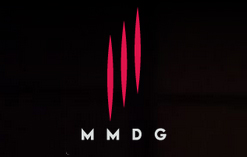 The Mark Morris Dance Group has been holding specific dance workshops for students & Parkinson’s sufferers, namely the company’s Dance for PD (Parkinson’s Disease) programme. Through this community-lead strand, and much like Rambert’s and English National Ballet’s similar work, the companies provide refuge and enjoyment for the sufferers through dance.
The Mark Morris Dance Group has been holding specific dance workshops for students & Parkinson’s sufferers, namely the company’s Dance for PD (Parkinson’s Disease) programme. Through this community-lead strand, and much like Rambert’s and English National Ballet’s similar work, the companies provide refuge and enjoyment for the sufferers through dance.
Much research has shown that dance can hugely improve the quality of life of people with Parkinson’s Disease, with many rehabilitation programmes focusing on movement and the use of the body to improve experiences whilst suffering with the disease. In particular for 2015, the Mark Morris Dance Group will be bringing its Dance for PD programme to the Sydney Opera House in June, alongside the company’s performance programme for the iconic venue.
For people with Parkinson’s and their carers, a free community dance class lead by dancers from the Mark Morris Dance Group will be held in June, alongside the Australian-based dancer Erica-Rose Jeffery who is the Dance For Parkinson’s Australia programme co-ordinator. Providing improved experiences for the sufferers is paramount to this work, and being able to engage simultaneously with the Mark Morris Dance Group will enhance the experience, much like the ethos of the aforementioned UK programmes.
For dance teachers, there will be a two-day introductory teachers’ training workshop held during June too, aiming to assist in growing the network of teachers qualified to lead dance classes for those with Parkinson’s Disease. The Mark Morris Dance Group will also hold two education workshops for school students, including a dance class for students with physical and intellectual disabilities, and a masterclass for more talented dance school students. The company’s visit to Australia, therefore, seems to be a wholly fulfilling venture, and is not one to be missed.

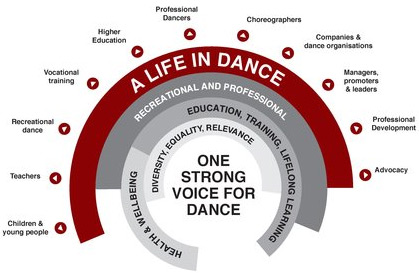 In March it was announced that Arts Council England has awarded a major grant for a new strategic dance body. The three year commissioned grant for a ground-breaking consortium will bring four leading dance organisations together to create a unified “go-to” industry body: Association of Dance of the African Diaspora (ADAD), Dance UK, National Dance Teachers Association (NDTA) and Youth Dance England (YDE).
In March it was announced that Arts Council England has awarded a major grant for a new strategic dance body. The three year commissioned grant for a ground-breaking consortium will bring four leading dance organisations together to create a unified “go-to” industry body: Association of Dance of the African Diaspora (ADAD), Dance UK, National Dance Teachers Association (NDTA) and Youth Dance England (YDE). Amazon has upped its presence in the theatre marketplace recently, announcing it will now sell theatre tickets, becoming further involved with the artistic industry. As a giant global retailer, Amazon appears to see UK theatre – and specifically the West End – as an area into which it can expand.
Amazon has upped its presence in the theatre marketplace recently, announcing it will now sell theatre tickets, becoming further involved with the artistic industry. As a giant global retailer, Amazon appears to see UK theatre – and specifically the West End – as an area into which it can expand.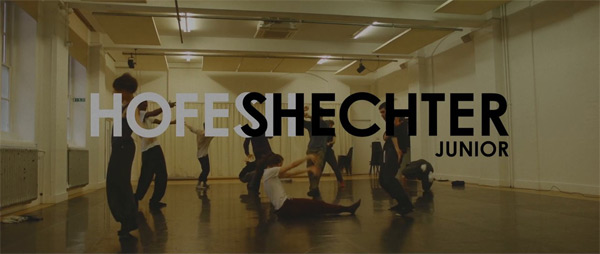 The internationally renowned Hofesh Shechter Company recently announced the launch of its new company, Shechter Junior. This new venture, providing resource for aspiring professionals, is an apprentice programme for talented, young dancers between the age of 18 and 25 years old. Shechter Junior emerged from Hofesh Shechter and his Company’s commitment to nurturing young artists and creating opportunities for them to gain professional experience in a financially challenged arts scene.
The internationally renowned Hofesh Shechter Company recently announced the launch of its new company, Shechter Junior. This new venture, providing resource for aspiring professionals, is an apprentice programme for talented, young dancers between the age of 18 and 25 years old. Shechter Junior emerged from Hofesh Shechter and his Company’s commitment to nurturing young artists and creating opportunities for them to gain professional experience in a financially challenged arts scene.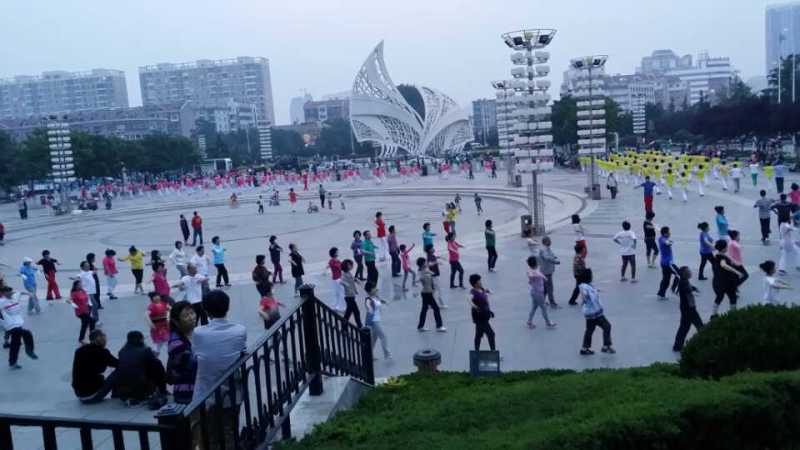 It has recently been reported that the millions of people who gather to dance in China’s public spaces will have to keep time with government regulations in future. In a country where censorship and strict regulations are in place as the norm, it seems this could spell the end for public square dancing in China, simply providing citizens with a small artistic outlet for themselves in a public space.
It has recently been reported that the millions of people who gather to dance in China’s public spaces will have to keep time with government regulations in future. In a country where censorship and strict regulations are in place as the norm, it seems this could spell the end for public square dancing in China, simply providing citizens with a small artistic outlet for themselves in a public space.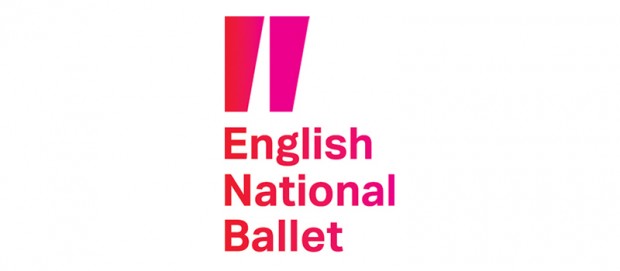 The winner of English National Ballet’s 2015 Emerging Dancer Award – the company’s sixth competition – was Jinhao Zhang. Zhang, who joined the Company just last year after graduating from English National Ballet School, performed the Dying Swan which he choreographed himself, and also a pas de deux from Don Quixote with fellow nominee and English National Ballet School graduate Isabelle Brouwers. The evening also saw Laurretta Summerscales named as the recipient of The People’s Choice Award, voted for by members of the public throughout the 2014/2015 season.
The winner of English National Ballet’s 2015 Emerging Dancer Award – the company’s sixth competition – was Jinhao Zhang. Zhang, who joined the Company just last year after graduating from English National Ballet School, performed the Dying Swan which he choreographed himself, and also a pas de deux from Don Quixote with fellow nominee and English National Ballet School graduate Isabelle Brouwers. The evening also saw Laurretta Summerscales named as the recipient of The People’s Choice Award, voted for by members of the public throughout the 2014/2015 season.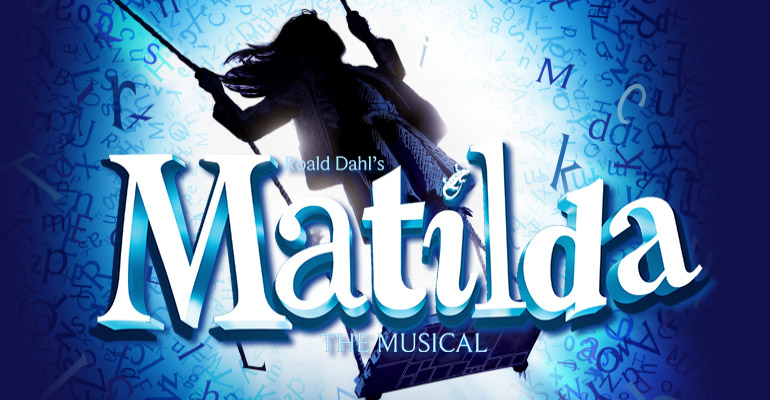 The Royal Shakespeare Company’s record-breaking production of Matilda The Musical is set to stage its second relaxed performance at London’s Cambridge Theatre in June this year. The specially adapted performance of the hit musical will take place on 14 June, offering full access to theatre and providing a special experience for those who may not usually have the opportunity to attend musicals.
The Royal Shakespeare Company’s record-breaking production of Matilda The Musical is set to stage its second relaxed performance at London’s Cambridge Theatre in June this year. The specially adapted performance of the hit musical will take place on 14 June, offering full access to theatre and providing a special experience for those who may not usually have the opportunity to attend musicals. The nominations for the 2015 Olivier Awards have recently been announced, following a year of the Olivier panel viewing huge numbers of performances across the board.
The nominations for the 2015 Olivier Awards have recently been announced, following a year of the Olivier panel viewing huge numbers of performances across the board. MPs have been urged to raise the profile of dance in a new manifesto that came to light during February from stalwart Dance UK. Politicians are now under further pressure to ensure dance plays a greater role in young people’s education, following what has been labelled a constant “undermining of arts subjects” by high-profile MPs.
MPs have been urged to raise the profile of dance in a new manifesto that came to light during February from stalwart Dance UK. Politicians are now under further pressure to ensure dance plays a greater role in young people’s education, following what has been labelled a constant “undermining of arts subjects” by high-profile MPs. Iconic choreographer Wayne McGregor is set to create a new world-class arts space in the Queen Elizabeth Olympic Park in east London. The leading company Wayne McGregor | Random Dance has set its sights on 2016 for the space to materialise. Studio Wayne McGregor – to be built within Here East – will be a home for McGregor, his company and collaborators, and a major resource for the arts and for the communities of east London.
Iconic choreographer Wayne McGregor is set to create a new world-class arts space in the Queen Elizabeth Olympic Park in east London. The leading company Wayne McGregor | Random Dance has set its sights on 2016 for the space to materialise. Studio Wayne McGregor – to be built within Here East – will be a home for McGregor, his company and collaborators, and a major resource for the arts and for the communities of east London.